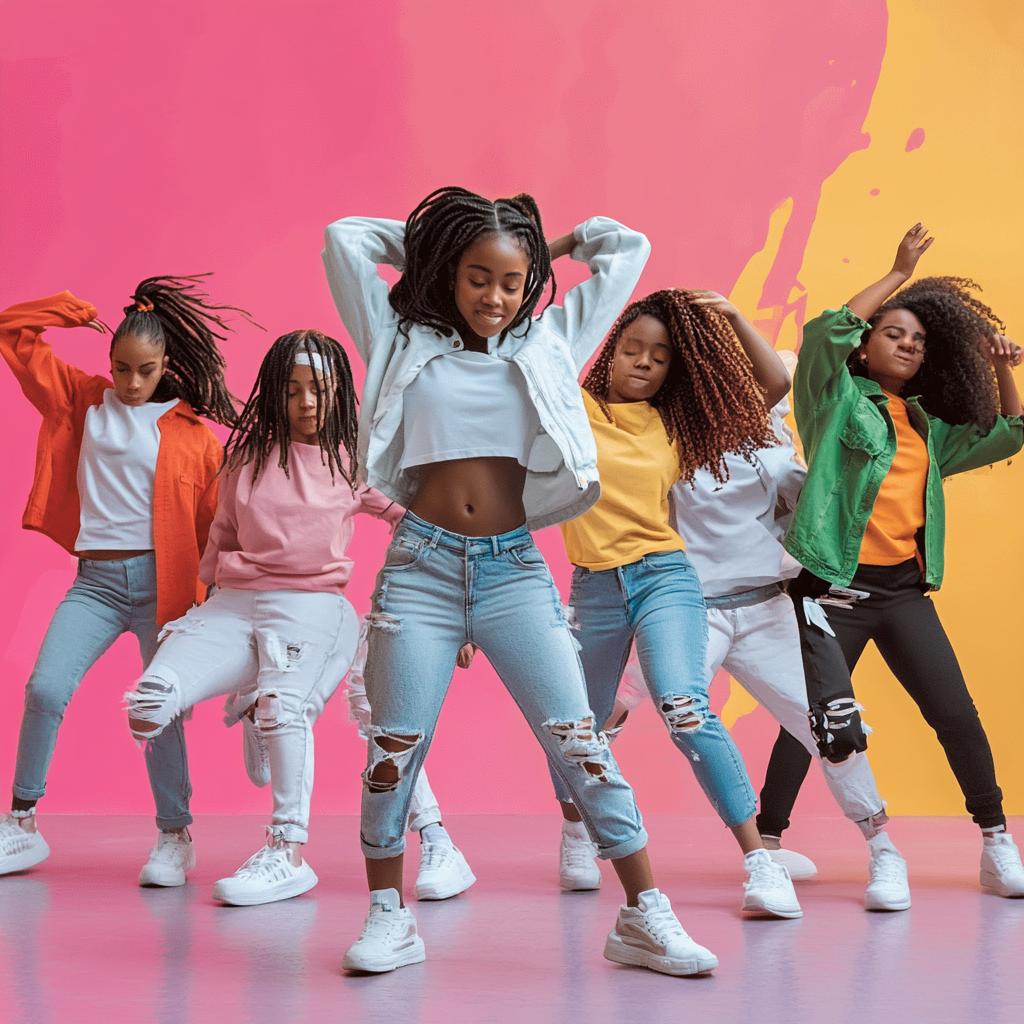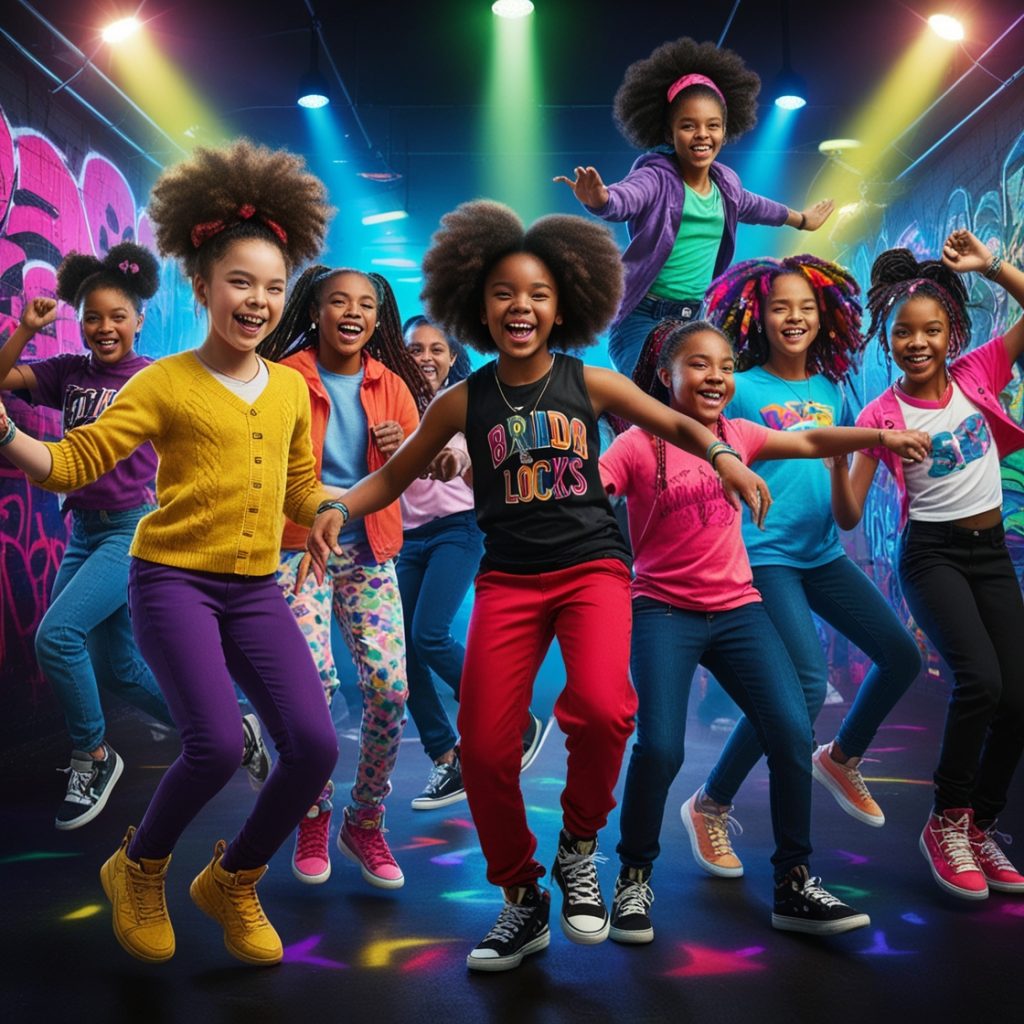
Black music, with its infectious beats and soulful lyrics, has been a driving force in shaping youth culture worldwide. From the jazz age to hip-hop, Black music has not only entertained but also served as a powerful tool for expression, empowerment, and social change. This article delves into the profound impact of Black music on youth culture, exploring its role in defining identities, fostering community, and inspiring activism.
The Birth of a Movement: The Jazz Age
The Jazz Age, a period of cultural and social transformation in the 1920s, saw the emergence of Black music as a dominant force in American popular culture. Jazz, with its syncopated rhythms and improvisational style, captured the spirit of the times and resonated with young people seeking to break free from societal constraints. Black musicians like Louis Armstrong and Duke Ellington became cultural icons, inspiring a generation of young people to embrace their creativity and challenge the status quo.
The Civil Rights Movement and Soul Music
The Civil Rights Movement of the 1950s and 1960s was a pivotal moment in the history of Black music. Soul music, a genre that blended elements of gospel, blues, and R&B, emerged as a powerful voice for social justice and racial equality. Songs like “Respect” by Aretha Franklin and “What’s Going On” by Marvin Gaye became anthems for a generation fighting for change. Soul music provided a platform for Black artists to express their experiences, raise awareness about social issues, and inspire hope for a better future.
Hip-Hop: A Cultural Revolution
Hip-hop, born in the Bronx, New York City, in the 1970s, has had a profound impact on youth culture around the globe. This genre, characterized by its rhythmic beats, rhyming lyrics, and DJing, emerged as a form of self-expression for young people in marginalized communities. Hip-hop artists like Public Enemy, N.W.A., and Queen Latifah used their music to address social issues, challenge authority, and empower Black youth. Hip-hop’s influence can be seen in fashion, dance, language, and even political discourse.
The Rise of R&B and Pop
In recent decades, R&B and pop music have continued to play a significant role in shaping youth culture. Artists like Beyoncé, Rihanna, and Drake have dominated the charts and become cultural icons, inspiring young people with their music, style, and message. R&B and pop music often explore themes of love, heartbreak, and personal growth, providing a soundtrack for life’s experiences. These genres have also been instrumental in promoting diversity and inclusivity in the music industry.
can go viral in minutes, sparking dance challenges and memes that spread across the globe.
Remember when you couldn’t scroll through TikTok without hearing “Savage” by Megan Thee Stallion? That’s the power of Black music in the digital age.
Black Music and Identity Formation

Black music has played a crucial role in shaping the identities of young people, particularly Black women. Through its lyrics, melodies, and visual representations, Black music has provided a means for young women to explore their experiences, express their emotions, and celebrate their cultural heritage. Black female artists like Lauryn Hill, Missy Elliott, and Lizzo have empowered young women to embrace their individuality, challenge stereotypes, and pursue their dreams.
Community and Connection
Black music has always been a source of community and connection. Whether it’s attending a concert, listening to music with friends, or sharing favorite songs on social media, music brings people together and fosters a sense of belonging. Black music has created a shared cultural experience that transcends borders and unites people from diverse backgrounds.
Global Influence: Black Music Beyond Borders
Black music’s impact on youth culture isn’t limited to the United States. From the streets of Tokyo to the clubs of Berlin, our rhythms and rhymes have found a home.
- Grime in the UK
- Afrobeats in Nigeria
- K-hip-hop in South Korea
These genres show how Black music has been adapted and embraced by youth cultures around the world.
The Digital Age: Amplifying Our Voice
Social media and streaming platforms have taken the influence of Black music in youth culture to new heights. A song can go viral in minutes, sparking dance challenges and memes that spread across the globe.
Black Music and Social Change
Throughout its history, Black music has been a powerful tool for social change. From the Civil Rights Movement to the Black Lives Matter movement, music has been used to raise awareness about social issues, mobilize communities, and inspire action. Black artists have used their platforms to challenge injustice, advocate for equality, and empower marginalized voices.
Challenges and Controversies
It’s not all smooth sailing. Black music in youth culture has faced its share of criticism and challenges:
- Concerns about explicit lyrics and imagery
- Debates over cultural appropriation
- The struggle for fair compensation in the streaming era
But these challenges have often led to important conversations and positive changes within the industry.
The Future Beat: What’s Next for Black Music and Youth Culture?
As we look to the future, one thing is clear: Black music will continue to be a driving force in youth culture. New genres will emerge, new stars will rise, and our influence will only grow stronger.
So, what can we do to support and celebrate this legacy?
- Support Black artists, especially independent and up-and-coming talents
- Educate ourselves and others about the history and significance of Black music
- Use our platforms, big or small, to amplify Black voices in the industry
Conclusion
Black music isn’t just a part of youth culture; it’s the rhythm that keeps it alive and evolving. From its origins in jazz to its contemporary forms like hip-hop, R&B, and pop, Black music has served as a source of expression, empowerment, bridge between cultures and social change. It has shaped identities, fostered community, and inspired countless young people to pursue their dreams and make a difference in the world. As we continue to celebrate the rich legacy of Black music, let us remember its power to unite, uplift, and transform. As Black women, we are both the creators and the custodians of this powerful legacy. Let’s continue to celebrate, support, and shape the soundtrack of youth culture worldwide.


